Patronizing the Mentally Disabled Should Not Be Acceptable in Our Society
We are at the end of Autism Awareness month and several people are attempting to showcase knowledge of the disability. In fact, us as a generation are attempting to create more awareness of special needs kids in general. However, it’s funny to think how despite our society’s greater understanding and awareness of mental disability, many of us still don’t know how to treat those who are disabled.
Now, I’m not talking about those who actively hate against those with mental problems or those who don’t see them capable of having stable careers and lives. While those are problems, most people understand that these are issues. I don’t think many people would My main concern is the way many young teens, and even adults, tend to see only a disability and not the person behind it.
This is something I have noticed throughout my life. It’s saddening that people have never brought up these behaviors or even discouraged others from doing them. What I tend to notice with those who interact with disabled people is how they show off a more patronizing personality. They’ll often perk up their voice, act overly chipper and talk in a manner they would to a small child. This mainly occurs in people with developmental disabilities like Autism or Down’s Syndrome, though this happens throughout the special needs community. When I see somebody talk like this, that’s sending me a signal that they’re more focused on the disability than the person they are talking to. It is disingenuous and gives off the implication that the person who is disabled won’t care or mind.
Now, I’m not saying these people are inherently bad human beings, and I do understand where the people are coming from. Assistance is required for some people with developmental disabilities and there should be a certain amount of awareness of their issues to make their lives easier. Being nice to somebody who is disabled doesn’t always mean you’re being patronizing. But when you start putting a fake persona of yourself because you’re more concerned about the disability than the person’s feelings, that’s a line that shouldn’t be crossed.
We also need to recognize that not all people who are disabled are as deeply impacted by their condition. Some are way more high-functioning than others and should be treated in a more adult manner. For example, some people with autism may have savant tendencies or could be really low functioning, but others could be higher functioning or more on the level of Aspergers. But these higher functioning individuals still be talked down to like their little kids. When you treat all people with a disability the same way, you’re basically showing that all those with a disorder are the same and ignores all the complexities of mental issues. Some are more likely to recognize the patronizing and become humiliated by the teens and adults manner of speaking.
It’s not just the fact that talking to the mentally disabled like that is dishonest and condescending, but the fact is that it can create serious psychological problems for the person as they continue to live. Many could become resentful towards other people and the way that others treat them, causing a disconnect between them and the public eye. They could have a hatred for their disabilities and resent the special classes and education they receive. They could have difficulty with social interaction and with attempting to achieve greater things in fear that they only get what they want due to being disabled. I should know because that’s exactly what I went through.
Being a kid who has suffered from Autism and has been a special ed student for most of my life, I have repeatedly dealt with those who have acted patronizing towards me due to my disability. As I got older, it became obvious what they were doing, which made me begin to doubt myself and my own disorder. For a long time, whenever somebody gave me a compliment, I never knew if they were being genuine or if they were just saying that because they knew I was autistic. I was slumped into the bubble of special needs and despite feeling more than capable of going beyond my limitations, many still saw me as the autistic boy. It made me feel unmotivated and I avoided taking risks and making friends out of fear of being patronized. I felt isolated and thought that I was worthless because I was disabled. I began to become resentful about my disability and felt disconnected with the people around me, thinking that they only pretended to like me because of my autism. For the longest time, I never even told people that I was on the spectrum to avoid judgment and so people would treat me like a normal human being. My autism felt like a burden all because a majority of people didn’t see me, but only my disability.
I’m aware that my views can’t change an entire society’s perspective on the mentally disabled. People will still treat those with a disability like children, feeding them dishonest messages that could damage their self-esteem.The public will still not recognize the disabled as human and slump them into a category where nobody’s unique and lesser impacted individuals apparently don’t exist. Society will still ignore the psychological effects of treating the mentally disabled in a patronizing way, causing resentment and anger towards their fellow humans and their own disability. But change is only gradual. What you should take away from reading this is that people are people regardless of whether they have the same mental capacity as you. To all who take this message seriously, please remember. See a person, not a label.

Ben Weiss is a senior perspectives editor and writer. It will be his second and last year on The Stampede. Other activities he’s involved in include...

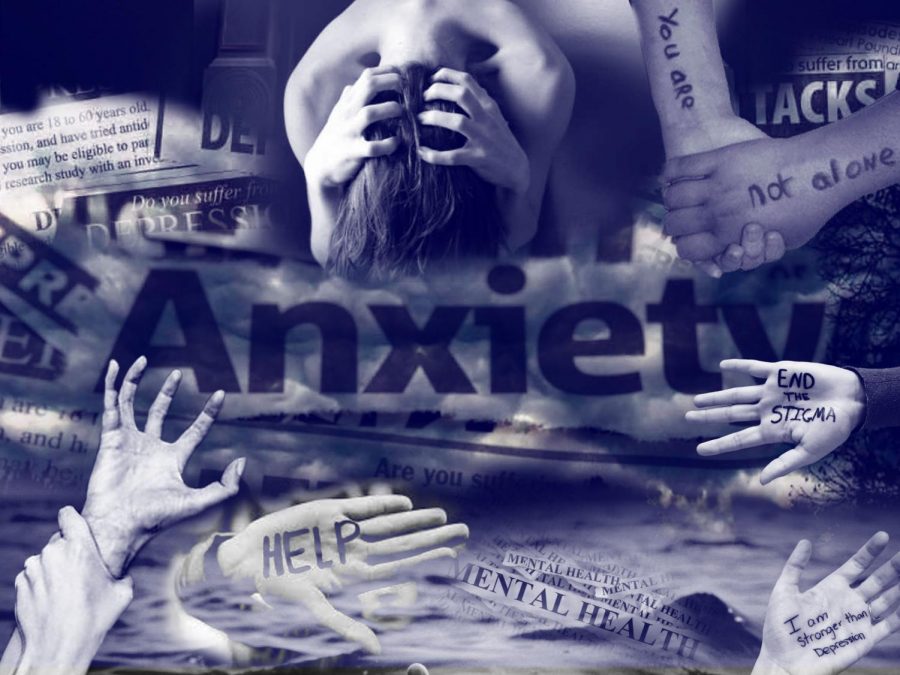



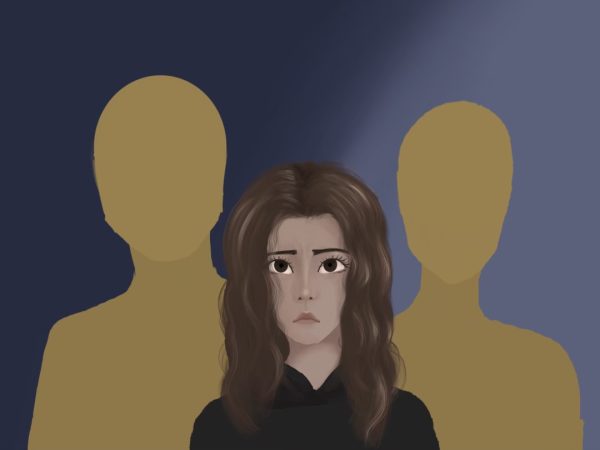
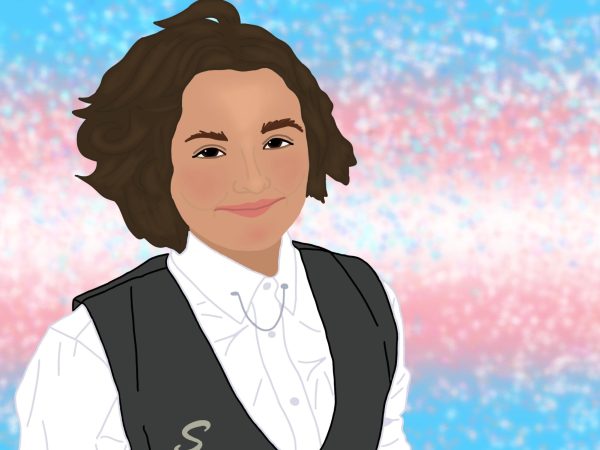
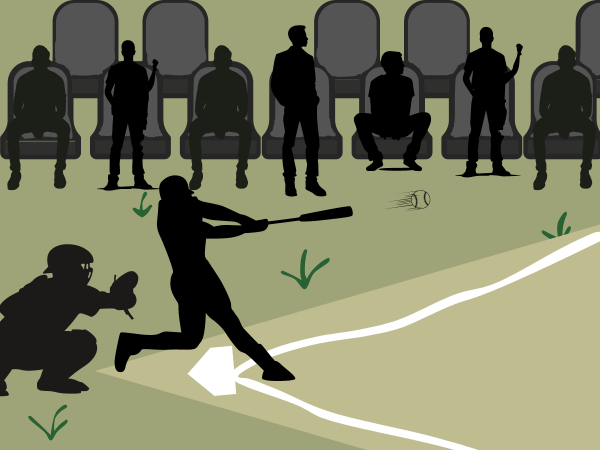
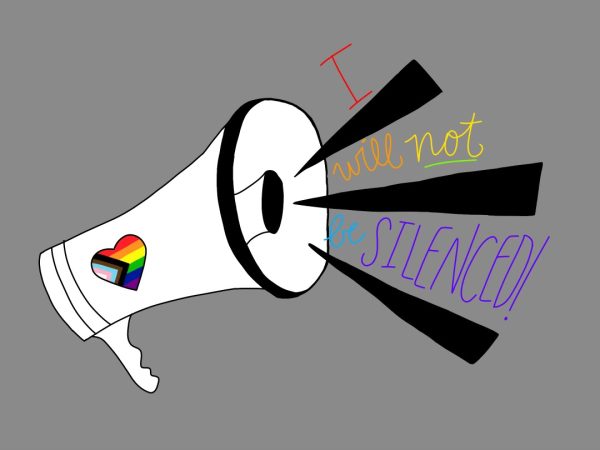
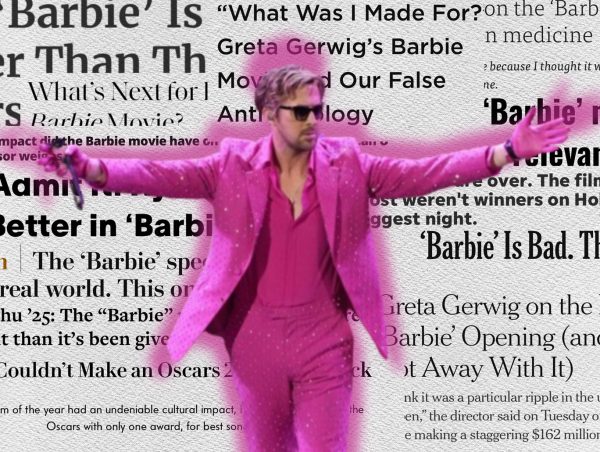

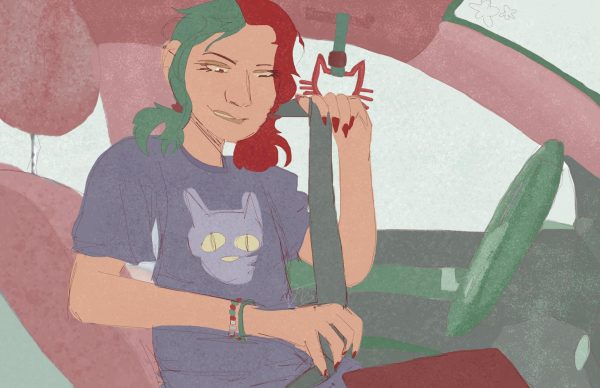
Meme Machine • Sep 21, 2018 at 8:41 am
Good article but really bad punctuation with a little it of lazy writing. Regardless of punctuation the article had a good topic.
sharkboi • May 2, 2018 at 11:18 am
yes! as someone with autism i get a lot of “oh wow, you can do that?” and “oh wow, I would’ve never guessed you were autistic!” and it’s really insulting and upsetting. im an 18 year old highschooler, not a child who needs to be praised for doing a super simple task. don’t get me wrong – the other end of the spectrum is rough too. some people i encounter insist on ignoring i have it at all and won’t help me when i need it, like when i have sensory overload problems or can’t handle a certain tactile input. find a nice happy medium, and treat me like a person while also keeping in mind i might need a hand once in a while.
Mackenzie • May 1, 2018 at 10:00 am
I completely understand. My boyfriend is physically disabled and the amount of times I have heard him talk about someone treating him like he is a child, and just a disability. They thought he couldn’t understand, but he is in honors classes and AP classes. Despite him being a teenager, a woman walked up to him and took his hand and tried to show him how to shake hands when he knew very well how. Any kind of disability is hard to live with and is a lot harder when you feel like you don’t belong. You are very strong to have gone through that. Good job.
Chocolate Chip Cookie • Apr 30, 2018 at 11:43 am
I was thinking about this just last night! What a coincidence! It’s so annoying to hear people talk to disabled people like they’re cute little animals. And then they think they’re such a good person because they were nice to a disabled person. Big whoop. How can someone learn ways to relate in society if everyone acts unnaturally around them? I’m sorry you’ve been treated that way because of your autism.
Killian Kenny • Apr 30, 2018 at 1:59 pm
thanks for your apology, it is greatly appreciated.
Mama • May 3, 2018 at 8:20 am
I mean… It’s not technically an apology. It’s a show of sympathy. An apology refers to remorse for something that a person has done. I highly doubt that this person has bullied anyone because of these reasons if at all.
Mama • Apr 30, 2018 at 11:11 am
Watch South Park. Sure, it’s crude and beyond offensive, but they (the kids) treat the mentally disabled (“handicapped”, as one prefers) kids exactly the same as they do each other. They rip on them like boys do and let them play their neighborhood games just like everyone else. One of the said, named Timmy, is shown to be an absolute genius on multiple occasions, showing that just because someone is different doesn’t mean they’re any less capable. There are a few episodes praising homosexuality as well, Cartman (main offensive character) surprisingly saying “I guess just because I don’t understand it doesn’t mean I shouldn’t support it.” It’s a great show making fun of everything, EVERYTHING, while still being wholesome (from time to time). South Park is surprisingly accurate on many things, but are mostly so on the topic of mental illness. Just make sure your parents aren’t around and/or they’re cool with it.
Lauren • Apr 30, 2018 at 10:23 am
This is an awesome article! I am so glad that Metea Media is talking these societal problems, as they are so worth fighting against. Thank you for sharing your story and standing up for what you believe in. 🙂
iris • Apr 30, 2018 at 8:50 am
yaaa boiiiii i agree… I’ve seen way too many of the helper teachers talk to disabled students like 2nd graders while also having really little patience for them. Along w this too many students who want to work with disabled kids+teens want to work with them because ‘they’re so cute!!’ (especially aimed at those with Downs) as if they’re some kind of puppy in a store.
marty the smart mustang • Apr 30, 2018 at 11:15 am
would you rather them be bullied?
iris • May 1, 2018 at 8:31 am
being patronizing is a form of bullying too, even if its not the whole pushing/shouting/stereotypical bullying.
if you don’t like someone, you don’t have to pretend to be their best friend, but you also don’t have to straight up push them around/harass them– just avoid the situation overall and leave them alone.
Mama • Apr 30, 2018 at 11:16 am
Absolutely. I know a teacher – not naming names – who is always up in the kids’ business and trying way too hard to “help” them. And not even treating them like 2nd graders, more like preschoolers. Let them learn how to do things for themselves. If you’re always carrying them on your back, they’ll be completely helpless and confused when they’re thrown out of high school and into the real world without someone doing everything for them. “Helping” them too much is doing just the opposite. Look, I get that some of these kids have difficulty learning the material and doing assignments, and being a 2nd line of defense is alright. But doing the projects for them isn’t helping anyone. Do you want them locked up in a mental hospital for the rest of their lives because they don’t know how to function without someone doing everything difficult for them? How do you think THEY feel?
:) • Apr 30, 2018 at 8:05 am
PREACH!
Killian Kenny • Apr 30, 2018 at 7:32 am
I’ve noticed the same problems my whole life. Being someone with autism, I also had to deal with over patronization (albeit for a short time). Thankfully it was put to rest when people saw that behind my disability was still the presence of another HUMAN BEING! As such, I don’t address those with disability in an over patronizing way; I address them as human beings. Because there’s still a brilliant mind behind the disability, and I’m sure they just want to feel accepted as opposed to merely acknowledged.
Reality Doctor • Apr 30, 2018 at 7:27 am
So true, because these people are human, they deserve to live like people!
Mama • Apr 30, 2018 at 11:20 am
I ride the bus with a kid named Jake, who I think many of you know. Every day after school, he’ll ride the bus with the kids at the back. What I see I really approve of. The other boys treat them just like they treat each other. And that’s how it SHOULD be. They don’t see him as “that one” or “the special needs kid”. They see him as “another high schooler.” They speak just as loosely as they would anywhere else. It’s great to see that. Knowing that it’s not in my neighborhood makes me happy.
Reality Doctor • May 1, 2018 at 2:05 pm
Exactly!